In this stained fluorescence image of a slice of mouse brain, green depicts the excitatory hippocampal neurons; in red are obesity-associated proteins and cell nuclei in blue.
Image courtesy of Ainara Pintor.
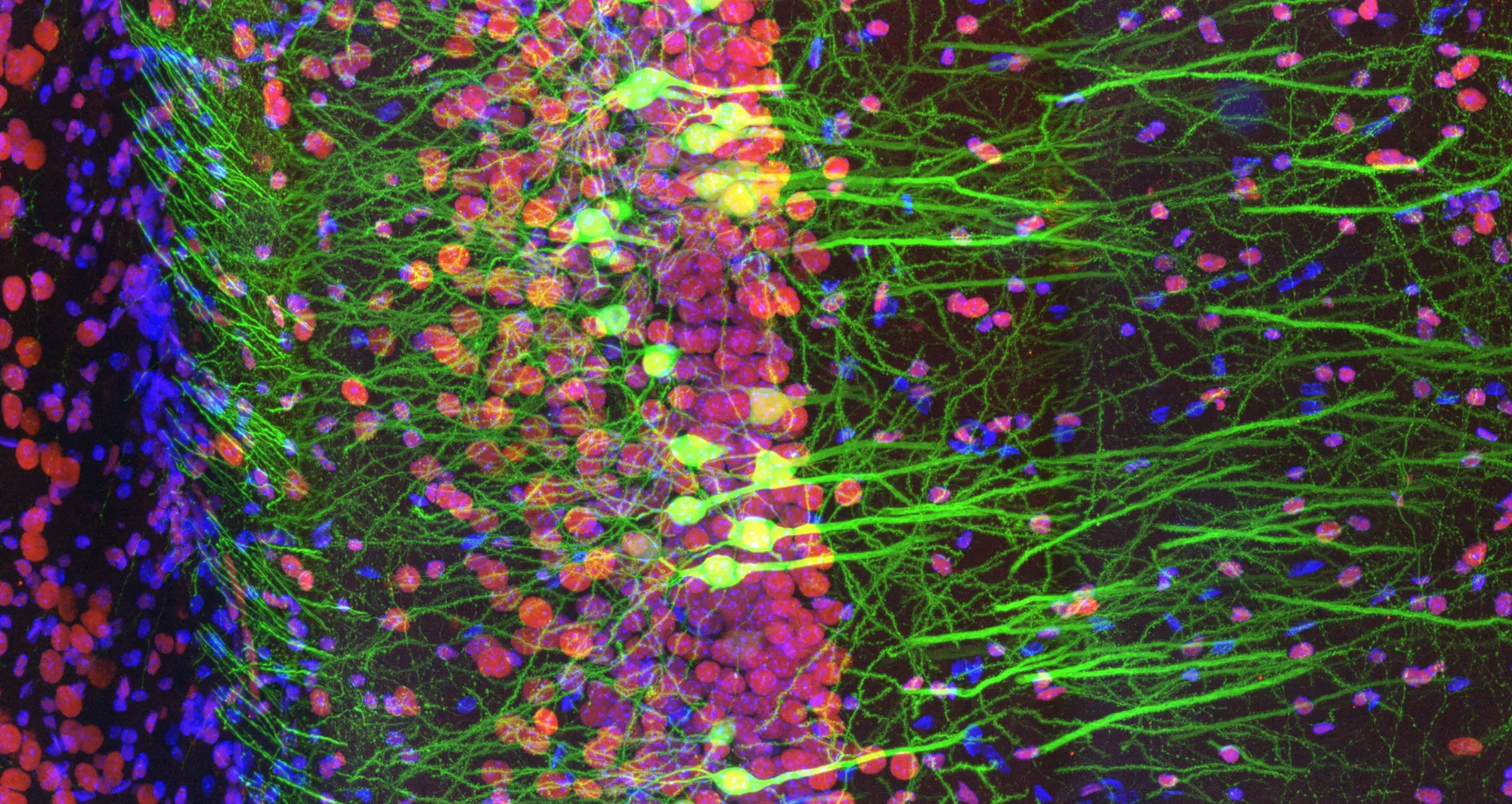
In this stained fluorescence image of a slice of mouse brain, green depicts the excitatory hippocampal neurons; in red are obesity-associated proteins and cell nuclei in blue.
Image courtesy of Ainara Pintor.
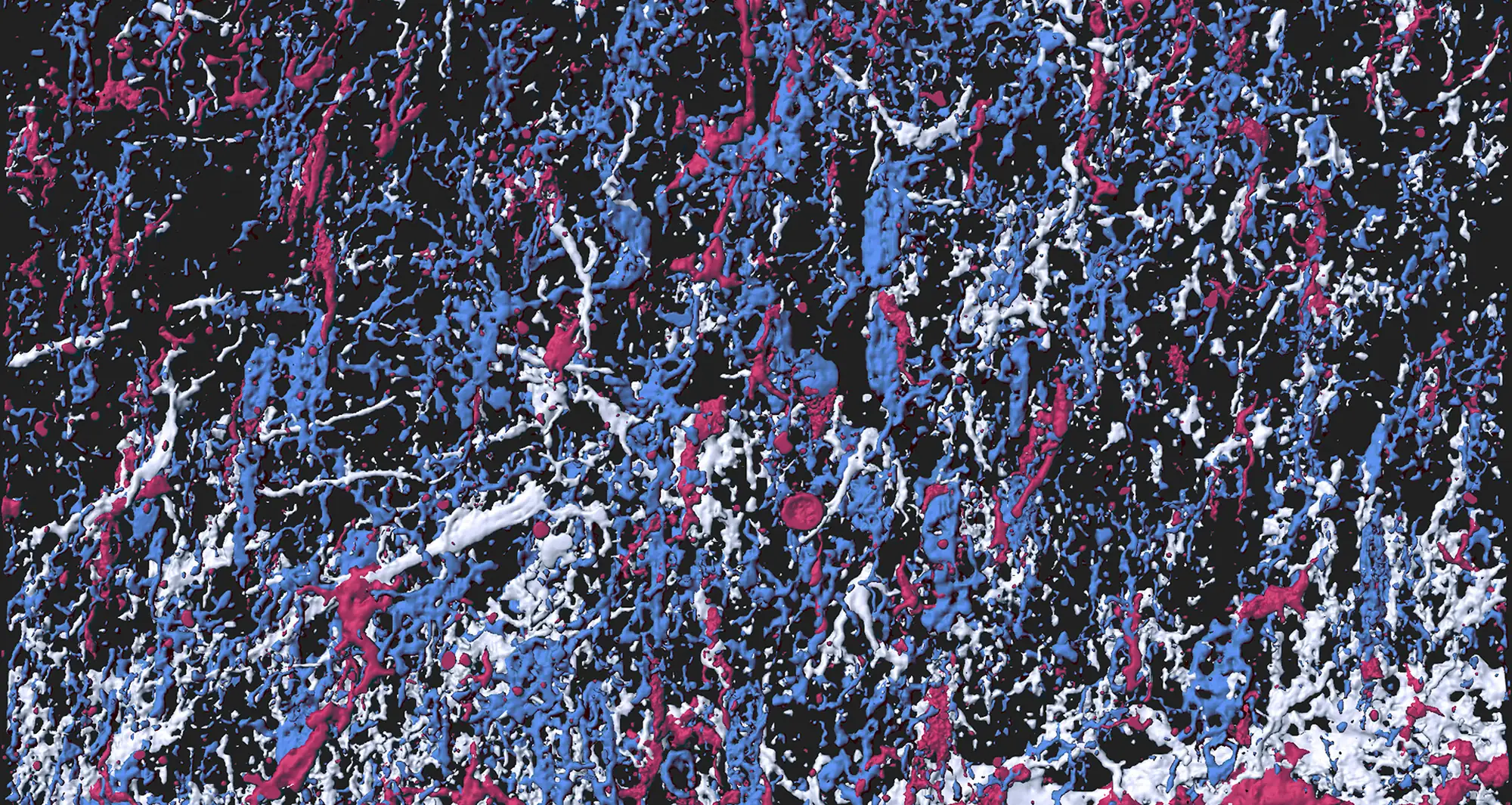
Dubbed “Pollock’s Glia,” this 3D reconstructed immunostained micrograph depicts astrocytes (white), oligodendrocytes (blue) and microglia (red) in human brain white matter, reminiscent of the artist Jackson Pollock’s abstract paintings.
Image courtesy of Yixun Su.
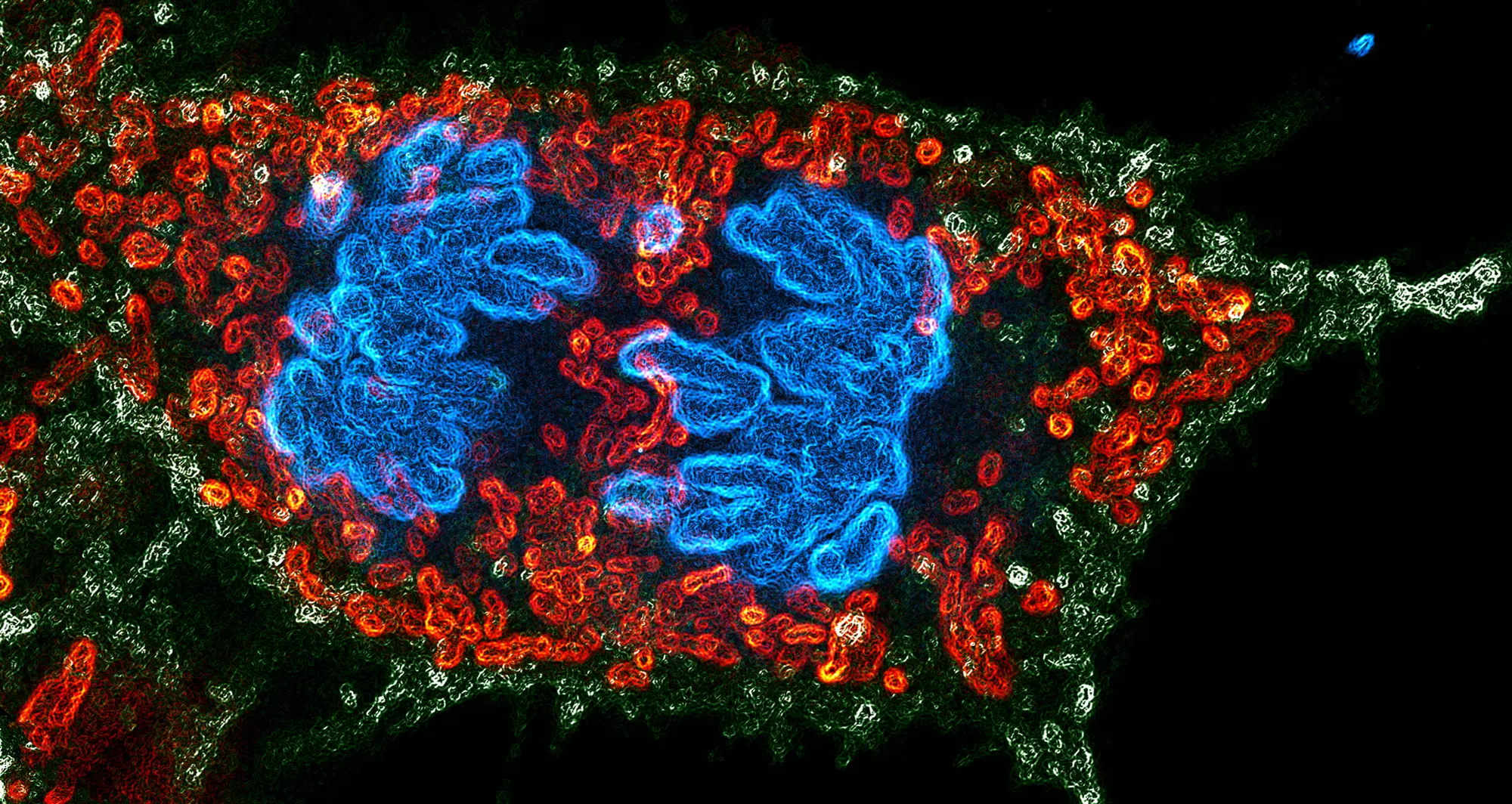
A micrograph depicting a dividing embryonic human kidney cell. Green marks the cellular boundary, red marks the mitochondria and blue shows the separating chromosomes.
Image courtesy of Sayantan Datta.
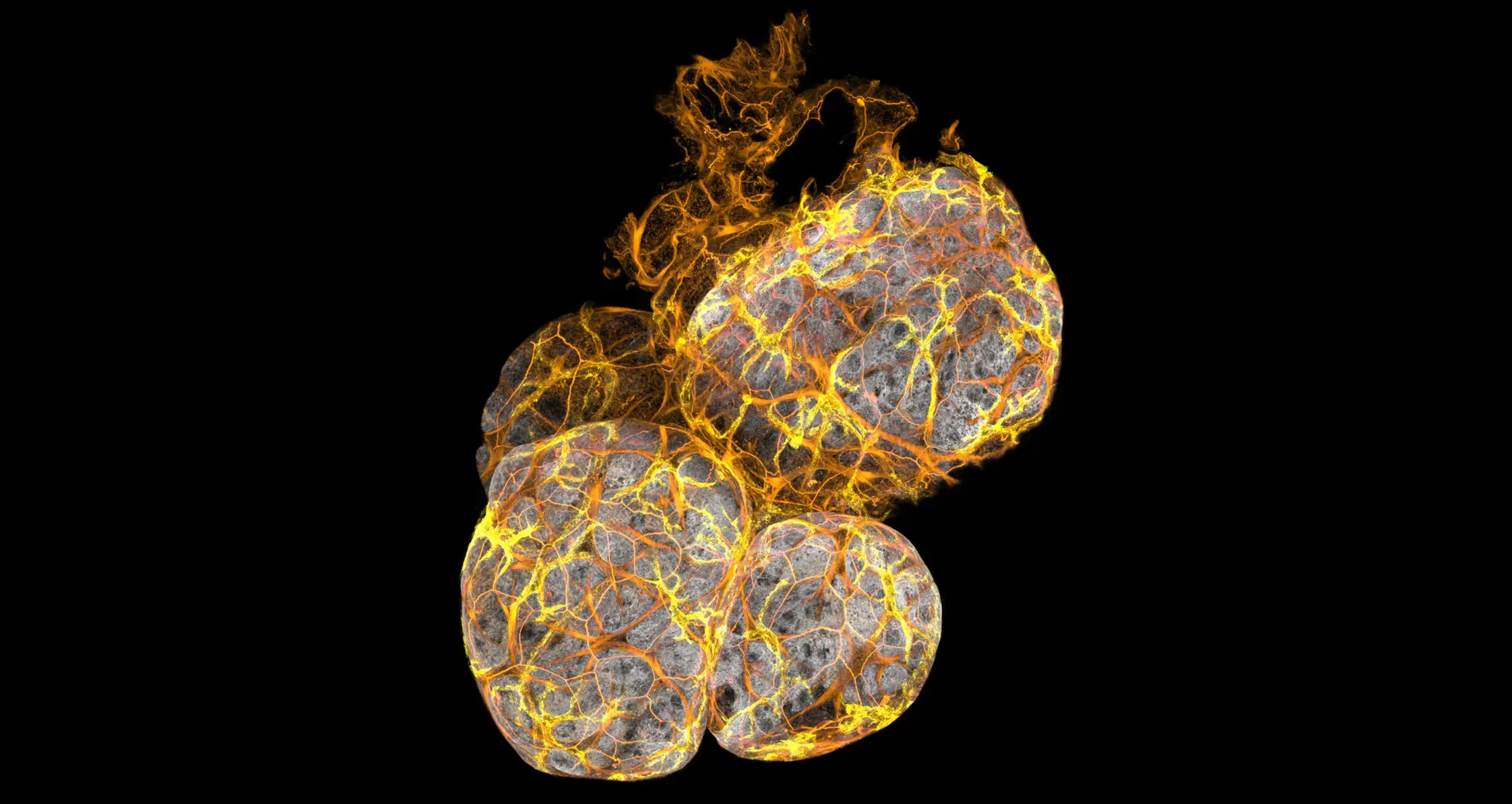
Mammary gland alveoli patrolled by ductal macrophages (yellow) during involution. Mammary duct involution is the process where the breast gland regresses from a milk-producing, lactating state to a non-lactating state.
Image courtesy of Caleb Dawson, The Walter and Eliza Hall Institute of Medical Research, Melbourne, Australia.
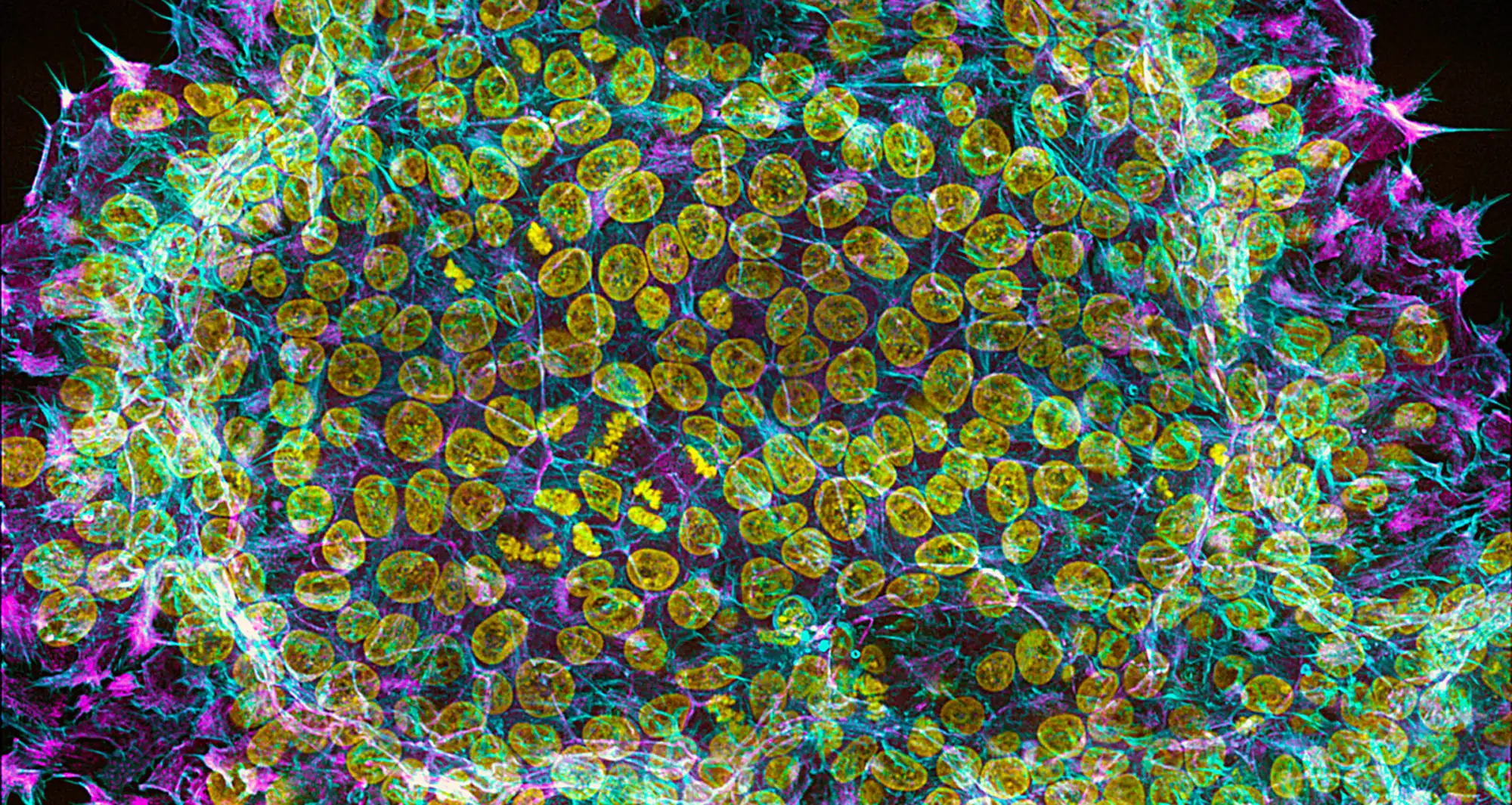
Human embryonic stem cell colony, using confocal and image stitching microscopy.
Image courtesy of Nilay Taneja, Vanderbilt University.
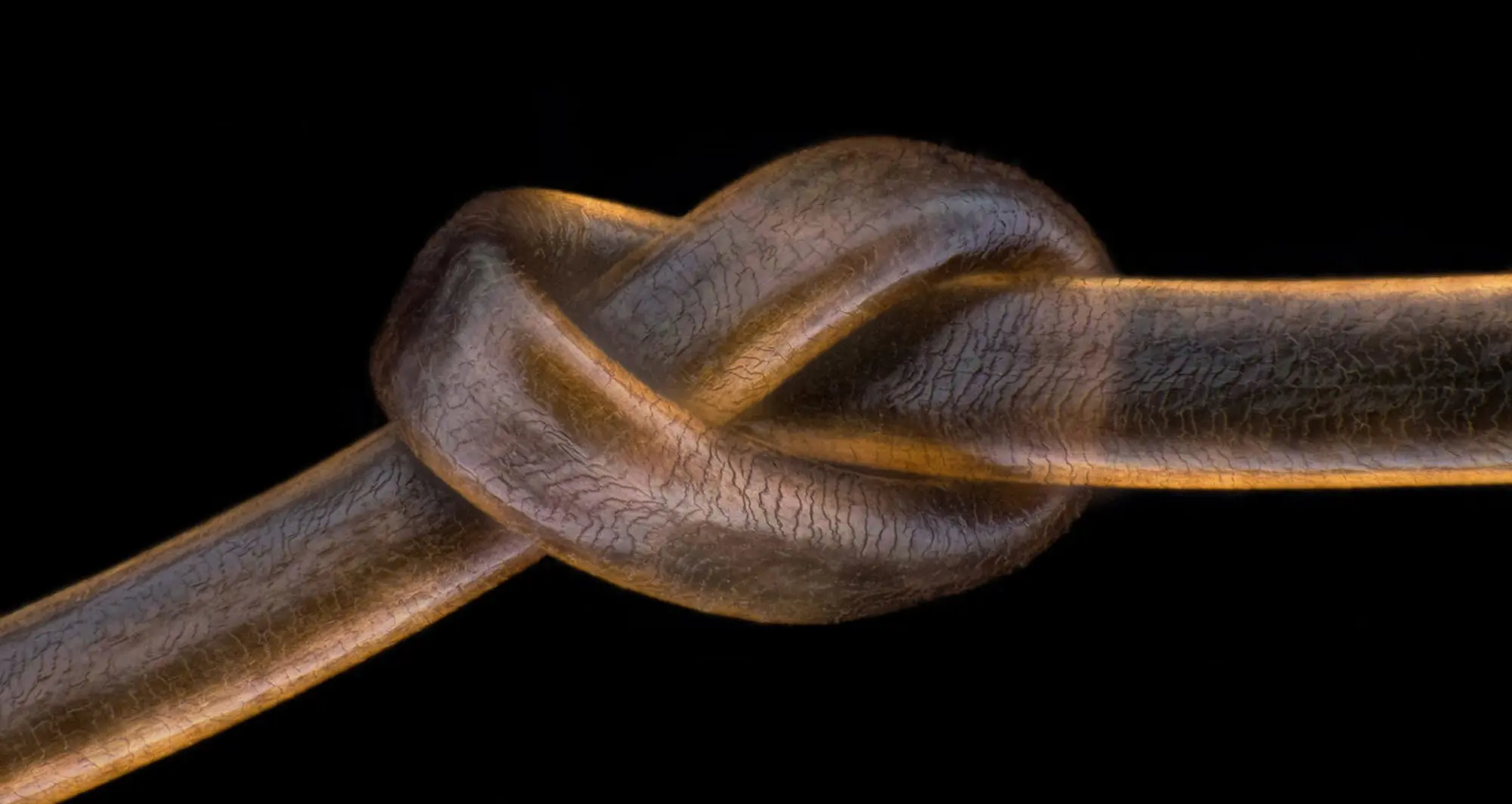
A knotted strand of human hair. Typically, a single strand of human hair is between 0.03mm and 0.06 mm in thickness, comparable to the width of a human skin cell and thinner than a fruit fly’s eye.
Image courtesy of Robert Vierthaler, Pfarrwerfen, Salzburg, Austria.
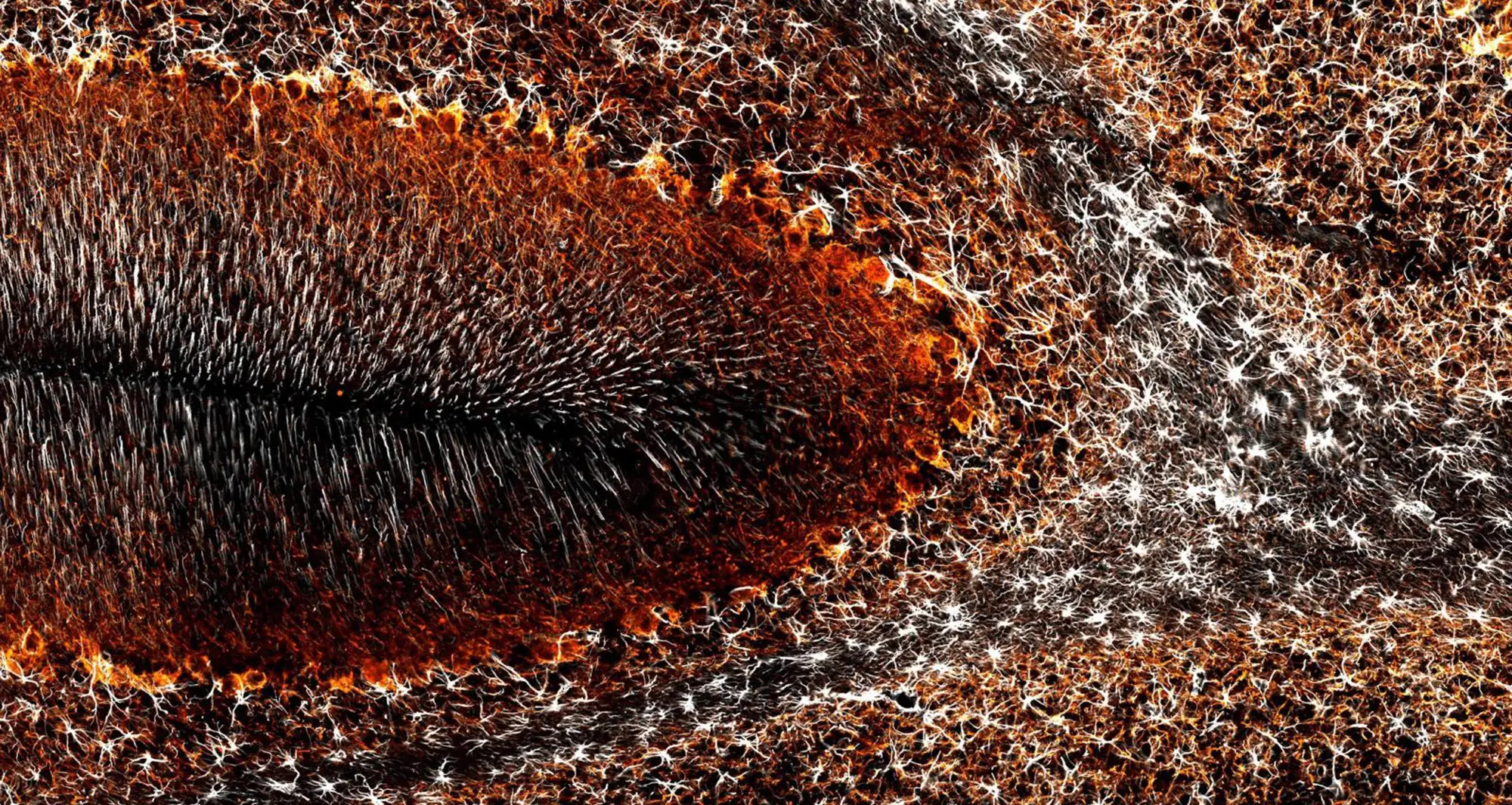
The cerebellum of a rat brain, with astrocytes and neurons, captured using confocal microscopy with immunohistological staining.
Image courtesy of Barbara Orsolits, Semmelweis University, Budapest, Hungary.
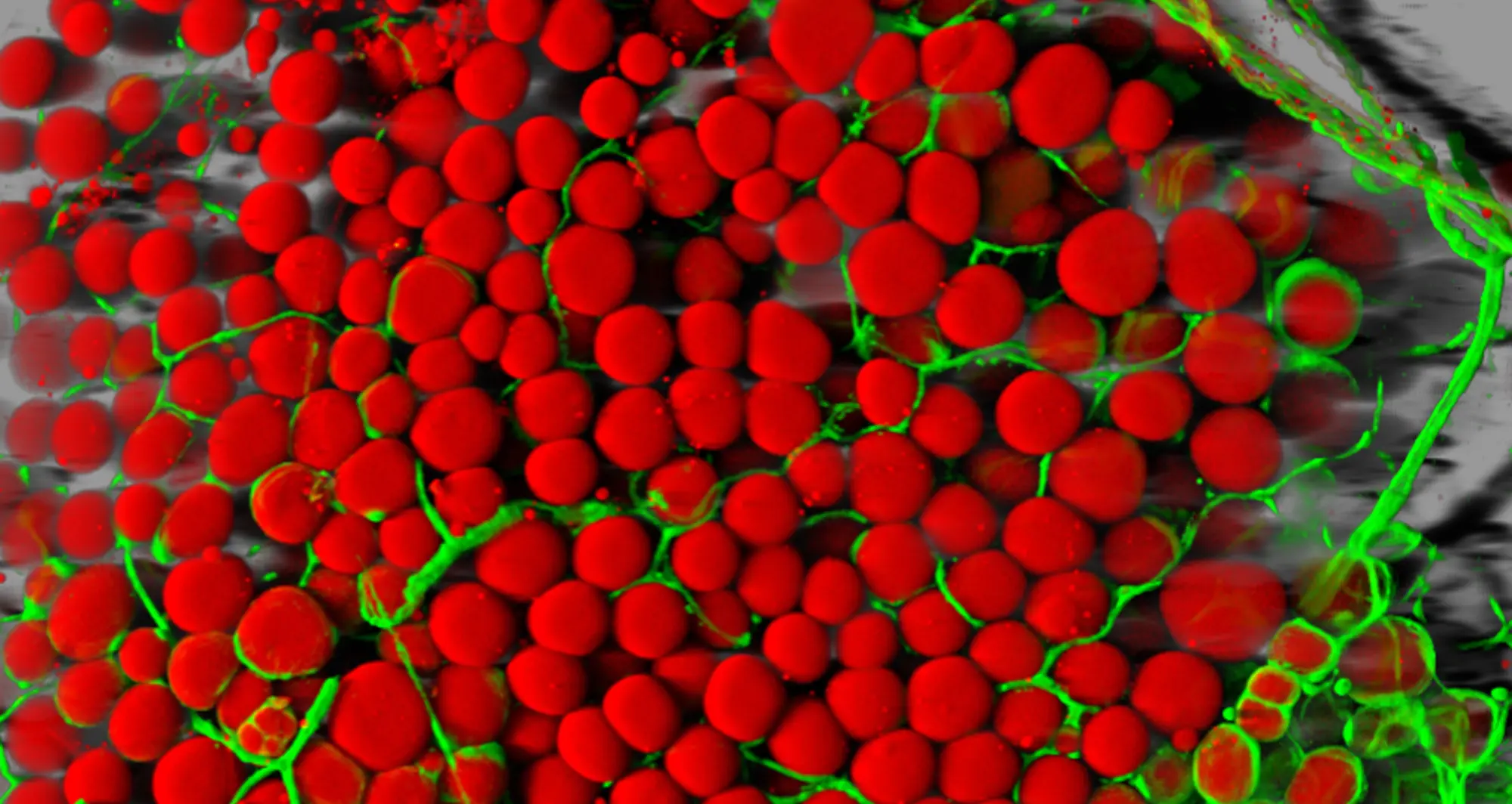
A colorized scanning electron micrograph of mouse fat cells (red) surrounded by a network of blood vessels (green).
Image courtesy of Daniel Malide, National Heart, Lung and Blood Institute, NIH.
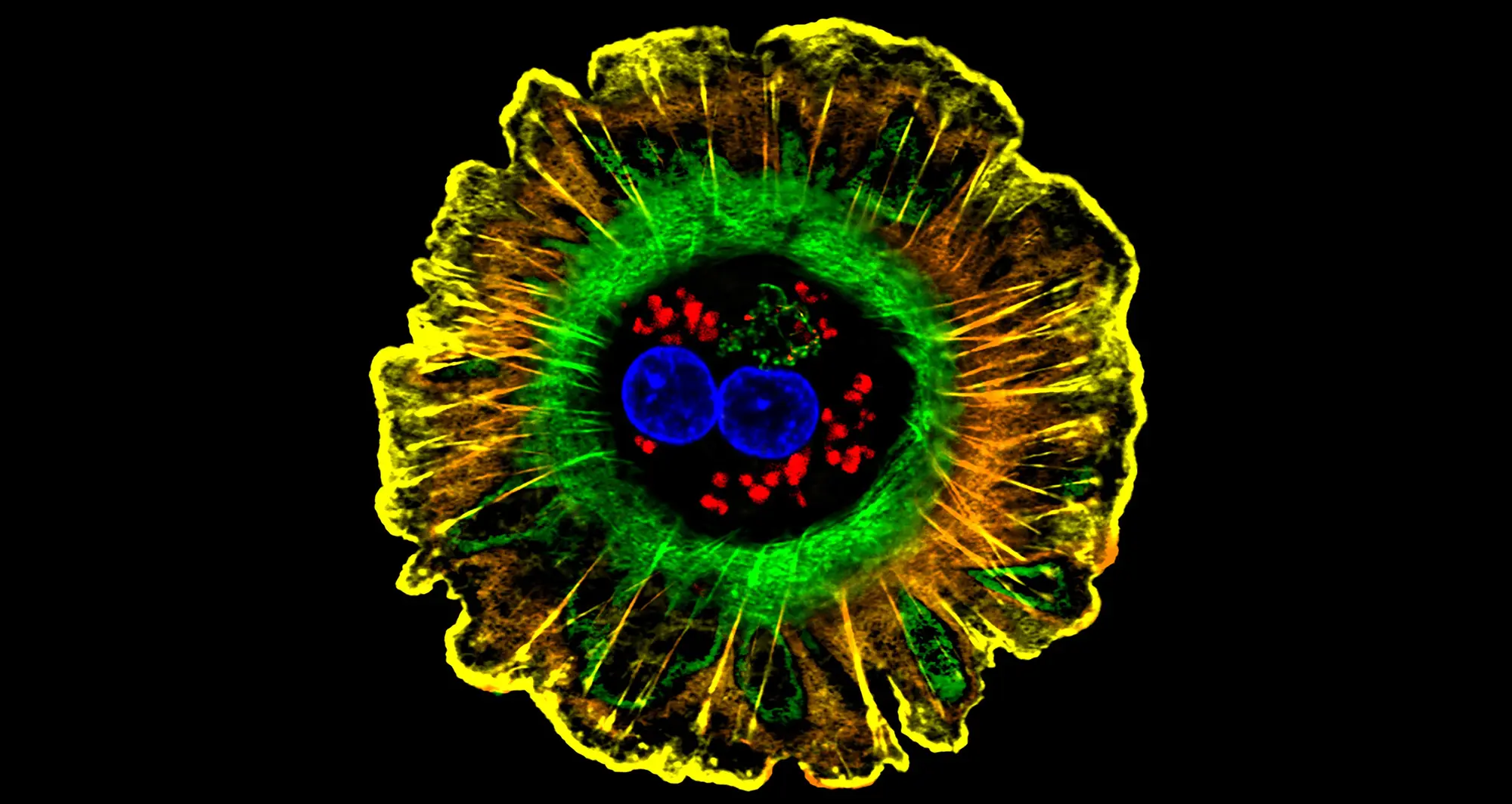
Hepatocytes or liver cells are the most abundant cell type in the human liver, and play multiple roles, including building proteins, producing bile to aid digestion of fats and chemically processing molecules found normally in the body, like hormones, as well as foreign substances like medicines and alcohol.
Image courtesy of Donna Beer Stolz, University of Pittsburgh.
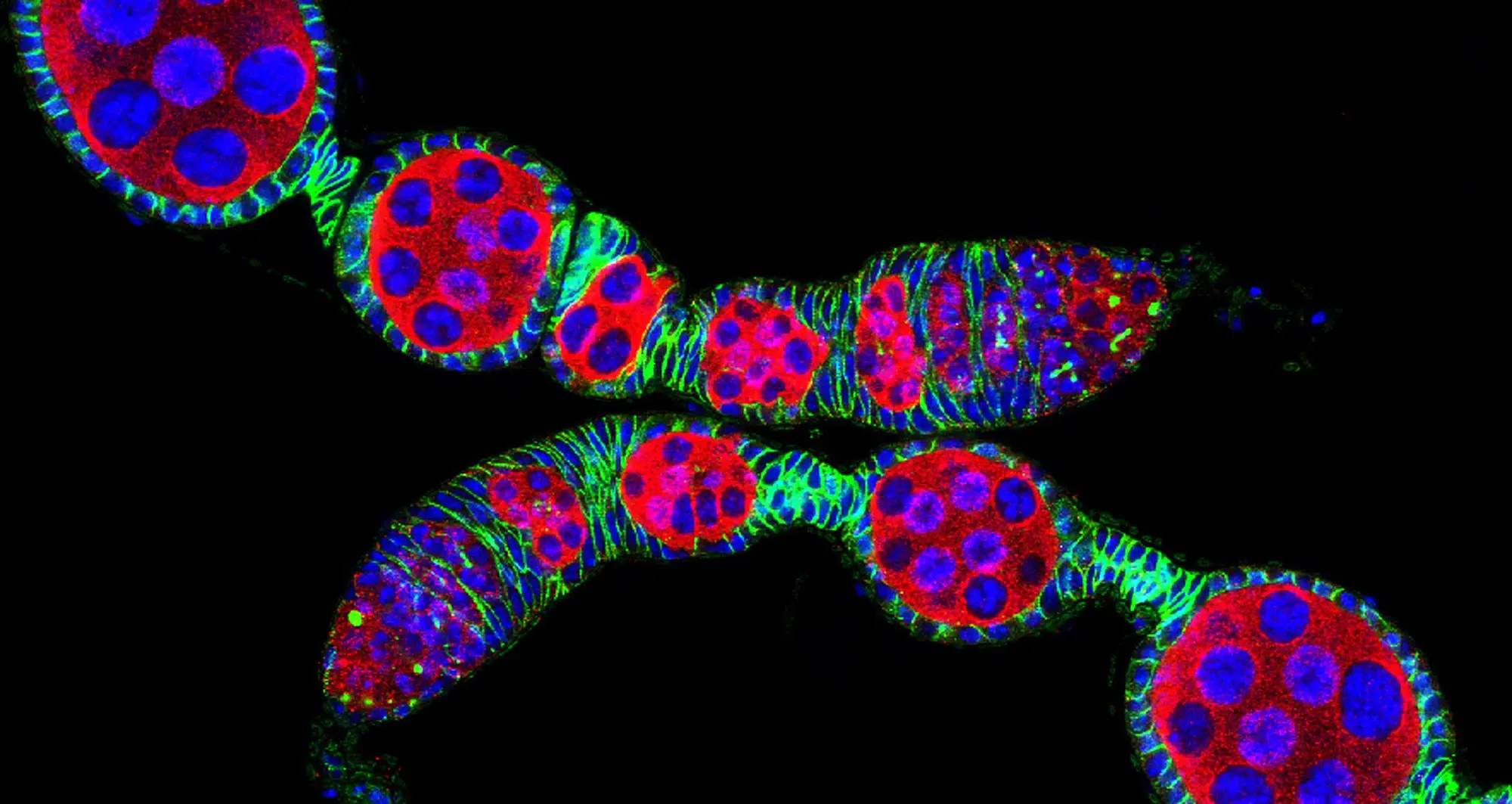
A confocal micrograph of Drosophila (fruit fly) ovirioles. In female insects, ovirioles are tubes in which eggs cells form at one end and complete development as they reach the other end of the tube. Scientists use insect ovarioles to study basic processes that help insects, including those that cause disease, reproduce quickly.
Image courtesy of National Institutes of Health.